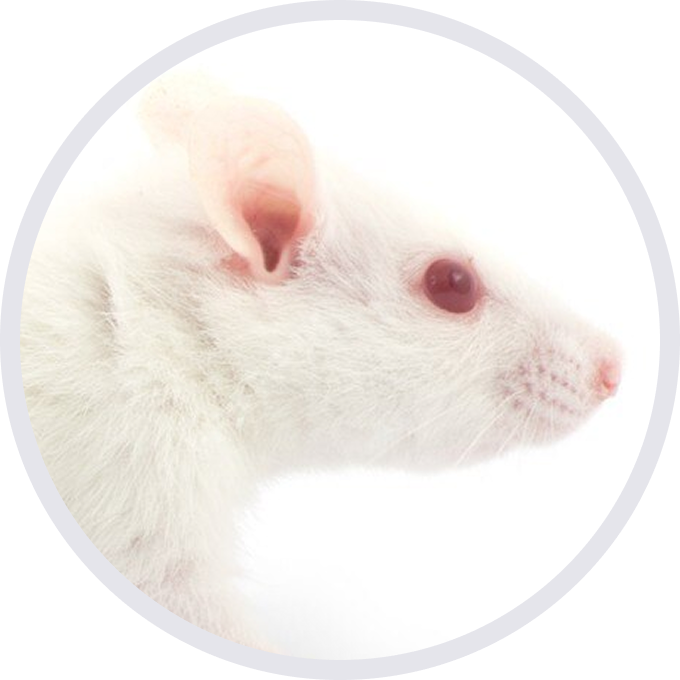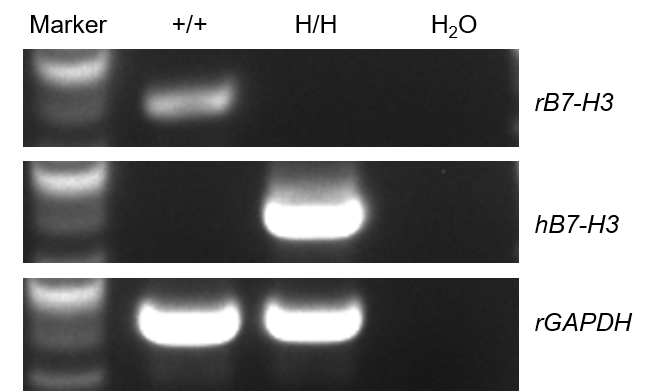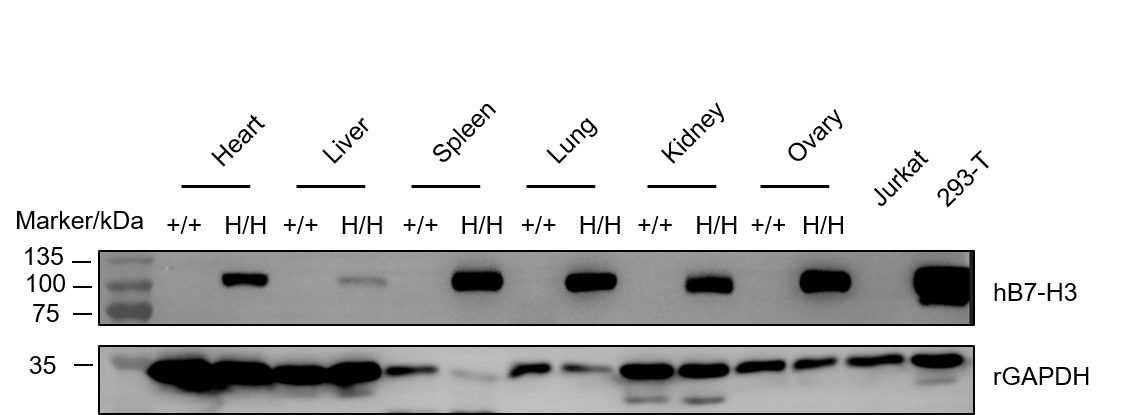
SD-Cd276tm1(CD276)Bcgen/Bcgen • 113104
Monoclonal antibodies (mAbs) like enoblituzumab have reached Phase II trials.
Antibody-drug conjugates (ADCs), such as MGC018, are in Phase I/II development.
B7-H3-directed CAR-T cells are being evaluated in early-phase clinical trials for solid tumors.
Radioimmunotherapies are also being explored.
Gene targeting strategy for B-hB7-H3 rats. The exons 3-4 of rat B7h3 gene that encode the extracellular domain is replaced by the exons 3-6 of human B7-H3 gene in B-hB7-H3 rats. The genomic region of rat B7h3 gene that encodes the signal peptide, transmembrane and cytoplasmic portion is retained. The promoter, 5’UTR and 3’UTR region of the rat gene are also retained. The chimeric B7-H3 expression is driven by endogenous rat B7h3 promoter, while rat B7h3 gene transcription and translation will be disrupted.

Strain specific analysis of B7-H3 gene expression in wild-type SD rats and homozygous humanized B-hB7-H3 rats by RT-PCR. Lung tissue was collected from wild-type SD rats (+/+) and homozygous B-hB7-H3 rats (H/H), Rat B7h3 mRNA was only detectable in wild-type SD rats. Human B7-H3 mRNA was only detectable in homozygous B-hB7-H3 rats, but not in wild-type SD rats.

Strain specific B7-H3 expression analysis in wild-type SD rats (+/+) and homozygous humanized B-hB7-H3 rats (H/H) by western blot. The tissues of heart, liver, spleen, lung, kidney, and ovary were collected from wild-type SD rats and homozygous B-hB7-H3 rats (female, 11-week-old, n=1). Protein expression was analyzed with anti-human B7-H3 antibody (Abcam, ab219648) by western blot. Human B7-H3 was only detectable in homozygous B-hB7-H3 rats, but not in wild-type SD rats.